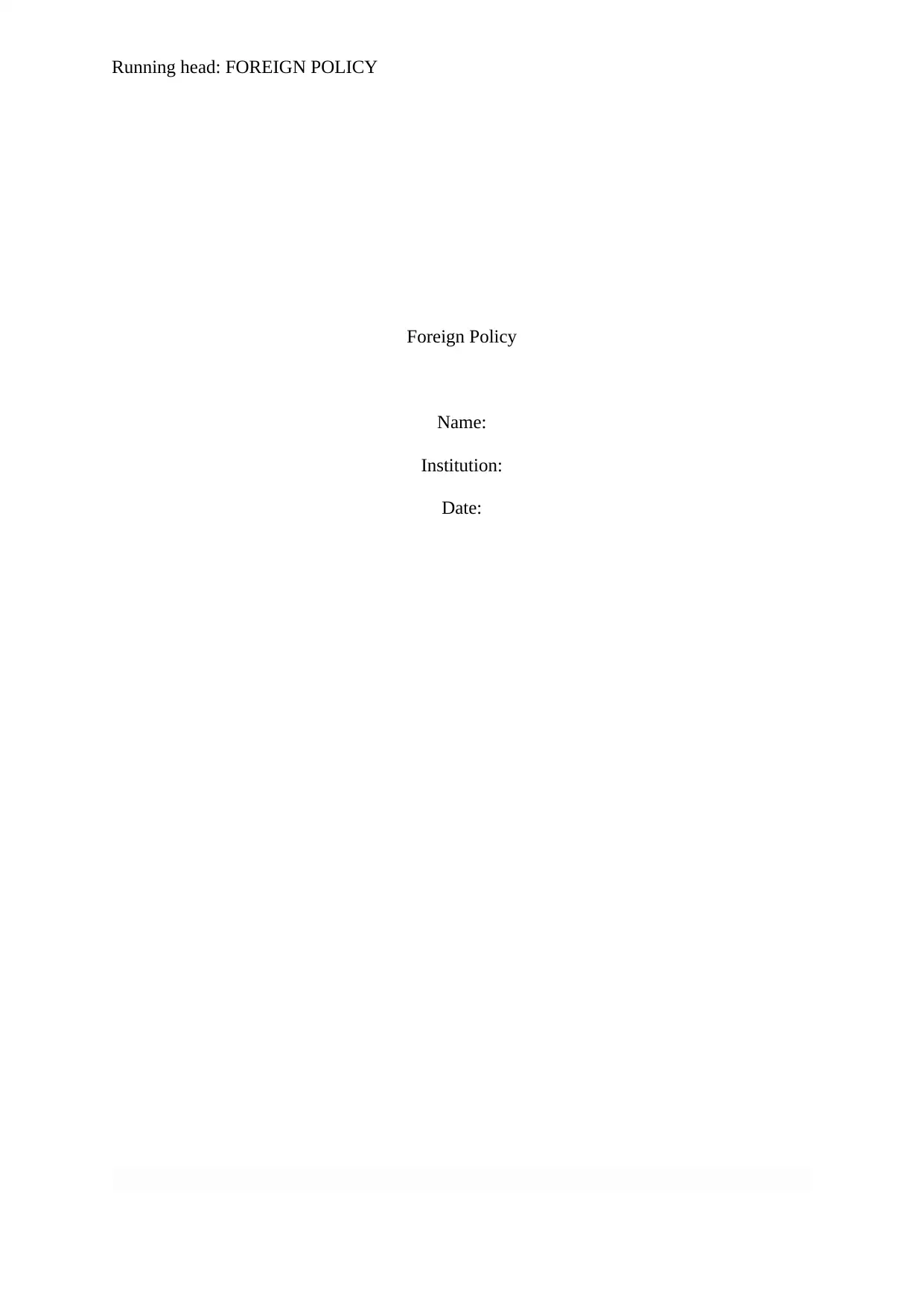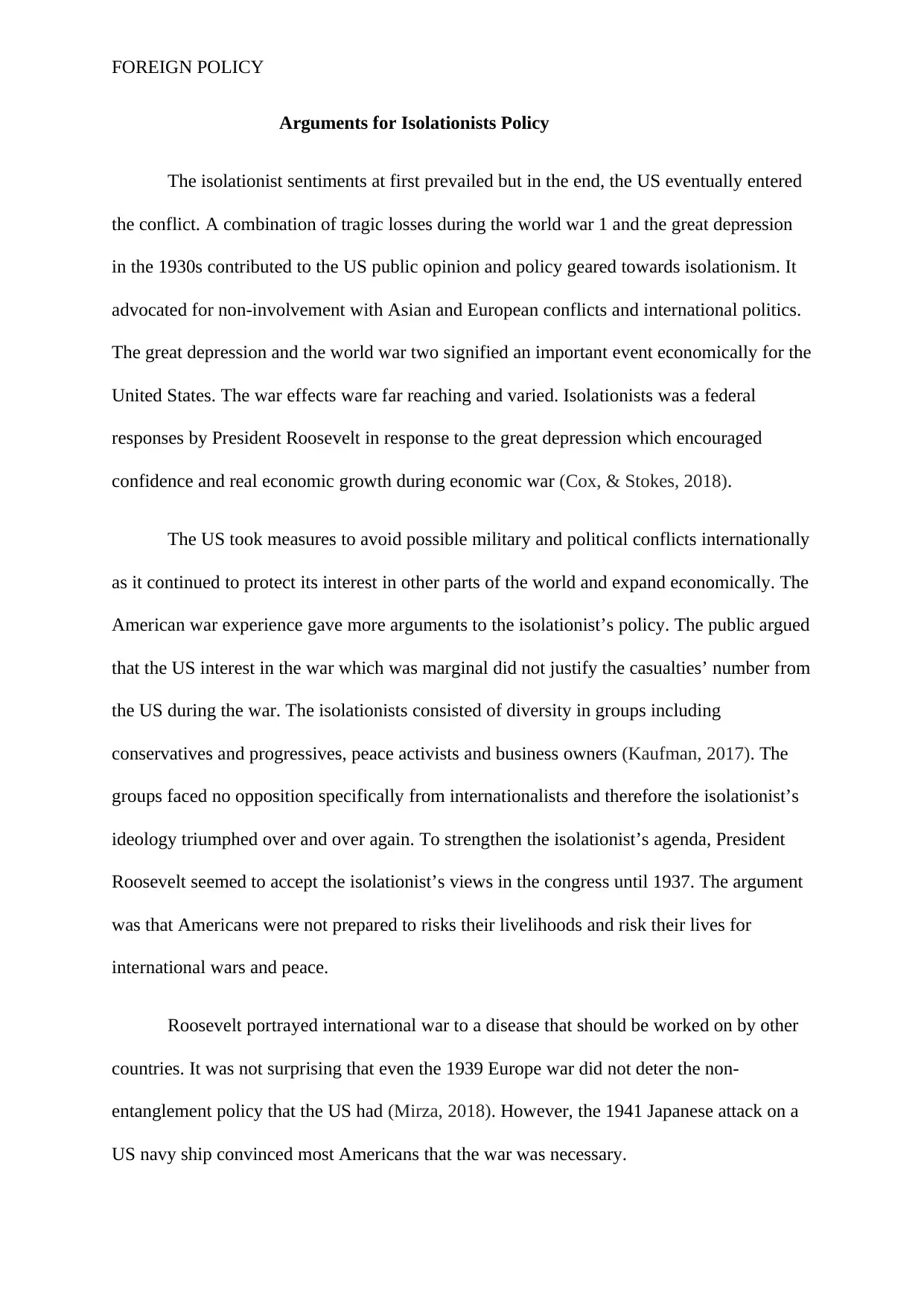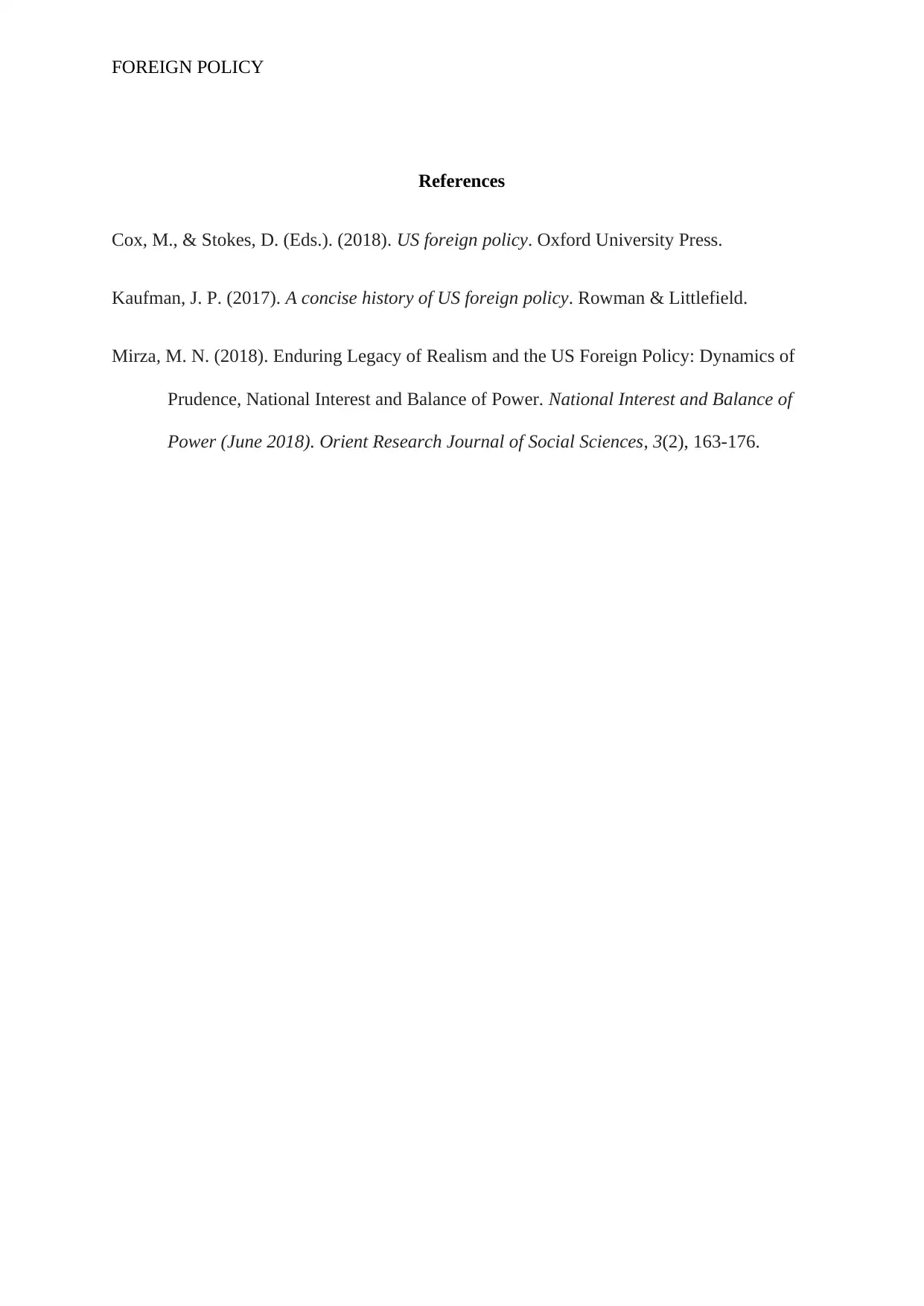Analysis of Arguments for US Isolationist Policy in Foreign Affairs
VerifiedAdded on 2022/10/02
|3
|463
|71
Essay
AI Summary
This essay examines the arguments for US isolationism in foreign policy, focusing on the period leading up to World War II. It analyzes the influence of the Great Depression and the war's impact on public opinion and policy. The essay discusses the role of President Roosevelt and the shift in public sentiment following the attack on Pearl Harbor. The arguments for isolationism are explored, including the emphasis on non-involvement in international conflicts and the prioritization of domestic concerns. The essay also highlights the different groups supporting isolationism, such as conservatives, progressives, peace activists, and business owners. References to relevant academic sources are included to support the analysis of this historical period and its impact on US foreign policy.
1 out of 3








![[object Object]](/_next/static/media/star-bottom.7253800d.svg)